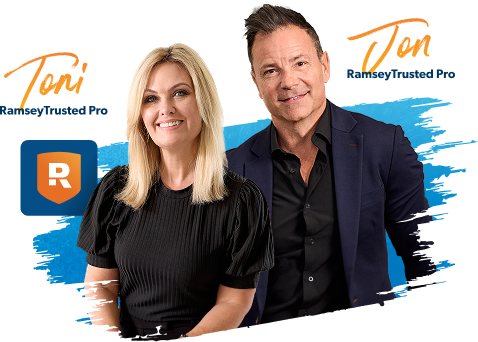When Is the Best Time to Buy a House?
6 Min Read | Mar 21, 2025

Thinking about buying a house and wondering when you should take the leap? You’ve come to the right place!
First, we need to be crystal clear: It’s never a good time to buy a house if you aren’t financially prepared. No matter what the market is doing, getting involved with real estate is a bad idea when you’re in debt, don’t have an emergency fund, or haven’t saved up a strong down payment.
That said, you can still feel confident about finding the best time to buy a house—you just need to understand the typical housing market patterns and how to know when you’re financially ready.
So, let’s take a deep dive into both of those areas. That way, you’ll be set up for success as you make one of the biggest purchases of your life.
What Is the Best Month to Buy a House?
If possible, it’s good to buy a house at the time of year when prices are lowest and inventory is highest. Traditionally, that’s August or September. Prices usually go down in late summer and early fall, since fewer buyers are looking at homes and inventory is still pretty high after the busy spring selling season.
On the flip side, the worst time to buy a house is typically the late spring and early summer (May through July). That’s because tons of people are in the market to buy a home—which means you’ll face more competition. Many home buyers, especially those with kiddos, want to buy a home in time to get moved and settled before the school year starts.
But keep in mind: No one can predict real estate trends with 100% accuracy. So never let what month it is make or break your home-buying decision—only your financial situation can truly determine the right time for you.
With that said, in 2024 the best time to buy a house was probably around September—when existing home prices had fallen nearly $15,000 since July and inventory was the highest it had been all year.
To see these trends for yourself, check out the chart below:
|
Month |
Home Price (Median) |
Inventory (Millions) |
|
October 2023 |
$391,600 |
1.15 |
|
November 2023 |
$387,000 |
1.13 |
|
December 2023 |
$381,400 |
0.99 |
|
January 2024 |
$378,600 |
1.01 |
|
February 2024 |
$383,800 |
1.06 |
|
March 2024 |
$392,900 |
1.11 |
|
April 2024 |
$406,600 |
1.20 |
|
May 2024 |
$417,200 |
1.28 |
|
June 2024 |
$426,900 |
1.32 |
|
July 2024 |
$421,400 |
1.34 |
|
August 2024 |
$414,200 |
1.37 |
|
September 2024 |
$406,700 |
1.36 |
|
October 2024 |
$407,200 |
1.371 |
Buy or Sell Your Home This Spring With Confidence
Now is a great time to buy or sell your home. Get ahead of the competition with help from a pro who’ll fight for you to get the best deal.
What Is the Cheapest Month to Buy a House?
Home prices are usually at their lowest in winter. In fact, based on the 12-month period in the table above, home prices were at their lowest in January 2024—at a median of $378,600. So if the best time to buy for you means getting the lowest price, be sure to slip on your warm woolen mittens before you go to showings.
See how much house you can afford with our free mortgage calculator!
But remember: You want to find the sweet spot of low prices and high inventory. While prices go down during the winter, fewer houses hit the market during the busy holiday season (not to mention some regions have the cold and snow to deal with). In the chart above, the number of homes for sale saw its greatest drop from November to December—losing 140,000 homes from the market.
Still, less demand for homes could give you some bargaining power when it comes time to make an offer on a house.
What Month Do Most Houses Go on the Market?
Most houses go on the market in the spring. In 2024, the national number of homes for sale shot up an additional 90,000 from March to April—the fastest rate of growth all year. That number kept growing into the summer and reached 1.34 million home listings by July.
On the downside, spring and summer are also the busiest house-hunting seasons, so competition and prices will likely be at their highest. This year, home prices shot up $9,700 from May to June and reached their highest point of the year at $426,900. But if you can budget for it, it’s often worth shopping when there’s an abundance of homes on the market to choose from.
Want More Expert Real Estate Advice?
Sign up for our newsletter! It’s packed with practical tips to help you tackle the housing market and buy or sell your home with confidence—delivered straight to your inbox twice a month!
The Best Time to Buy Depends on You
Remember: Even though you can try timing your home purchase just right to find the widest selection or pay the lowest price, the best time to buy is when your finances are in order.
Here are the biggest signs you’re ready to buy a house:
- You have zero debt and a full emergency fund. Expenses like student loans, credit card debt and car payments keep you from having the margin you need to save for a home. And once you’re in a home, you’ll need an emergency fund to cover unexpected costs when they inevitably pop-up. So dump the debt and save up 3–6 months of your typical expenses for emergencies.
- Your house payment won’t be more than 25% of your take-home pay. This includes principal, interest, property taxes, home insurance, private mortgage insurance (PMI) and homeowners association (HOA) fees.
- You’ve saved up a strong down payment. Taking out a mortgage with a super low or no down payment will have you paying so much extra in interest and fees and keep you in debt for decades. That’s why you should save up a down payment of at least 5–10% if you’re a first-time homebuyer, or 20% if this isn’t your first rodeo. It’ll protect you from a lifetime of stress and money fights in the long run.
- You can handle homeownership costs. Depending on the age of the home you buy, you could end up having to tackle several home maintenance projects in a year, costing hundreds to thousands of dollars. When you buy a house instead of rent, there’s no more landlord to fix things for you. Also, moving into a bigger space usually means your utility bill will be higher too—so make sure you can budget for these things.
- You plan on staying put for a while. All the up-front costs and work you’d put into getting a house probably won’t be worth the small amount of value you’d gain by living in it for only a short amount of time. But if you love your city and plan to stay put for at least three years, buying a house is a great investment.
If each of those statements sounds like you—congrats! Now could be the best time for you to buy a house.
Next Steps
- Figure out your home budget by using our home affordability calculator.
- Get the ball rolling by getting preapproved for the right mortgage.
- Find an experienced real estate agent who knows your market like the back of their hand. For a quick and easy way to find agents in your area, try our free RamseyTrusted program.
Did you find this article helpful? Share it!

We Hear You!
We’re considering adding the ability to save articles to your Ramsey account.




